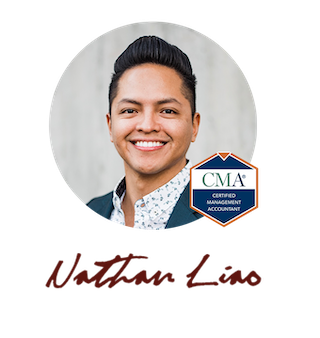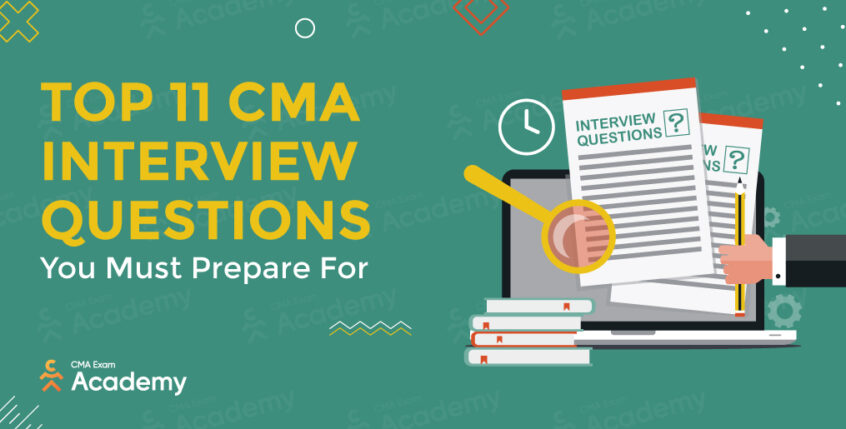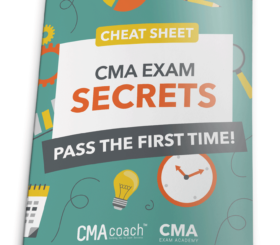Congratulations on becoming a Certified Management Accountant! You conquered the challenging CMA exam, and now it’s time to land your dream job.
What kinds of questions should you prepare to answer in an interview for a CMA role?
Below are some tips and strategies for interview preparation. I’ll cover everything you need to know, from the types of questions to expect to how you can showcase your skills and leave a lasting impression.
How to Prepare for a CMA Interview
Before we dive into specific CMA interview questions, let’s talk prep. Here are the key areas to consider when gearing up for your interview:
Understand the Role
Research the specific position and the company culture. What are their core values? What are the day-to-day responsibilities? Tailor your answers to demonstrate how you’d be a perfect fit. Read through their website and LinkedIn page.
Brush Up on Key CMA Topics
Refresh your memory on core CMA concepts like cost management, financial reporting, and strategic planning. This will help you demonstrate your in-depth knowledge and ability to apply these principles on the job.
Prepare for Common Interview Questions
We’ll explore specific questions later but anticipate discussing your experience, problem-solving skills, and career goals.
Highlight Your Soft Skills
CMAs are more than number crunchers! Strong communication skills, teamwork, and analytical skills are essential. Share examples from your past that showcase these soft skills.
Prepare Questions to Ask
Showing up to an interview with a few questions for your interviewers shows initiative and genuine interest in the role and company. Prepare insightful questions about the team, projects, and company culture.
Dress Appropriately
First impressions matter! Dress professionally and ensure your attire reflects the company’s values.
Follow-Up
Send a thank you email to the interviewers within 24 hours, reiterating your interest in the position.
What Questions Can You Expect on a CMA Job Interview?
Now, let’s get into the details—the questions themselves. Remember, there’s no one-size-fits-all list, but here are some common CMA interview questions and tips on how to answer them effectively:
1. Can you explain your cash flow management, budgeting, and forecasting approach?
Articulate your process for analyzing financial data, creating realistic forecasts, and managing cash flow to ensure financial stability. Draw from previous experience and explain yourself with confidence.
2. Can you describe a time when you identified a significant financial error and how you handled it?
Share a specific instance when you spotted a mistake, communicated it effectively, and collaborated to resolve it.
3. Explain how you would assess the financial health of our company based on our latest financial statements.
This is where your CMA knowledge will shine! Review their financial statements and analyze key metrics like profitability, liquidity, and solvency to paint a picture of the company’s financial standing. Think of it as an impromptu exam simulation in real-time.
4. Discuss a situation where you had to make a tough financial decision that involved a significant ethical dilemma. What was the outcome?
Demonstrate your ability to navigate complex situations while upholding ethical standards. Describe your thought process and the positive outcome achieved.
5. What experience do you have with financial software and systems, and how have these tools helped you in your previous roles?
Highlight your proficiency with relevant software, such as accounting programs (Quickbooks, Xero), financial modeling tools (Excel), and ERP systems (Enterprise Resource Planning). Explain how these tools streamlined tasks like data analysis, reporting, and budgeting in your previous roles. If you have experience with AI accounting software, this is an excellent opportunity to discuss how you use it.
6. What is your approach to managing and developing an accounting and finance team?
Discuss your leadership style, emphasizing clear communication, delegation, and performance feedback. Share how you would create a culture of learning and development within your team, promoting continuous improvement and professional growth.
7. Describe a time when you had to lead a team under tight financial constraints. What strategies did you use?
Share a specific scenario where you had to manage a team effectively despite budgetary limitations. Highlight your cost-saving strategies, prioritization skills, and ability to motivate your team to achieve goals within restricted resources.
8. How do you communicate complex financial information to non-financial stakeholders, such as the board of directors or employees?
Emphasize your ability to tailor communication to many audiences. For non-financial stakeholders, explain how you’d simplify complex financial data using clear language, visuals, and real-world examples to ensure their understanding and buy-in.
9. How do you stay current with changes in financial regulations, accounting standards, and industry trends to ensure that financial reports are accurate, timely, and compliant with regulations?
Demonstrate your commitment to continuous learning. Mention resources you use to stay updated, such as professional organizations like the IMA, industry publications, and continuing education courses. Highlight how you proactively ensure financial reports adhere to the latest standards and regulations.
10. How do you collaborate with other executives and departments to align financial strategies with overall business objectives?
Showcase your collaborative spirit. Emphasize open communication, active listening, and the ability to explain the financial implications of decisions across different departments. Share an example of how you partnered with other teams to achieve shared goals.
11. What are the most important qualities of a successful Management Accountant, and how do you embody those qualities?
List essential qualities like analytical skills, strong work ethic, problem-solving abilities, and strategic thinking. Provide specific examples from your career demonstrating how you possess these qualities and how they contribute to your success.
Land Your Dream CMA Role
By preparing for these common interview scenarios and showcasing your CMA expertise and soft skills, you’ll be well on your way to landing that dream CMA job.
Remember, you’ve already conquered the CMA exam—you can handle anything a CMA interview throws your way!
Not certified yet, but ready to join the ranks of successful CMAs?
Explore our 16-Week Accelerator Course to start your journey to becoming a CMA in as little as 8 months!

Hi, I’m Nathan Liao (aka the CMA Coach)! For the last 10 years, over 82,000 accounting and finance pros came knocking at my door seeking guidance and help. If you’re also aiming to conquer the CMA exam on your very first try—without wasting away time or money—you’ve found your ultimate guide. Dive in deeper to discover more about me and the dedicated team that powers CMA Exam Academy. Click here and let’s embark on this journey together!


